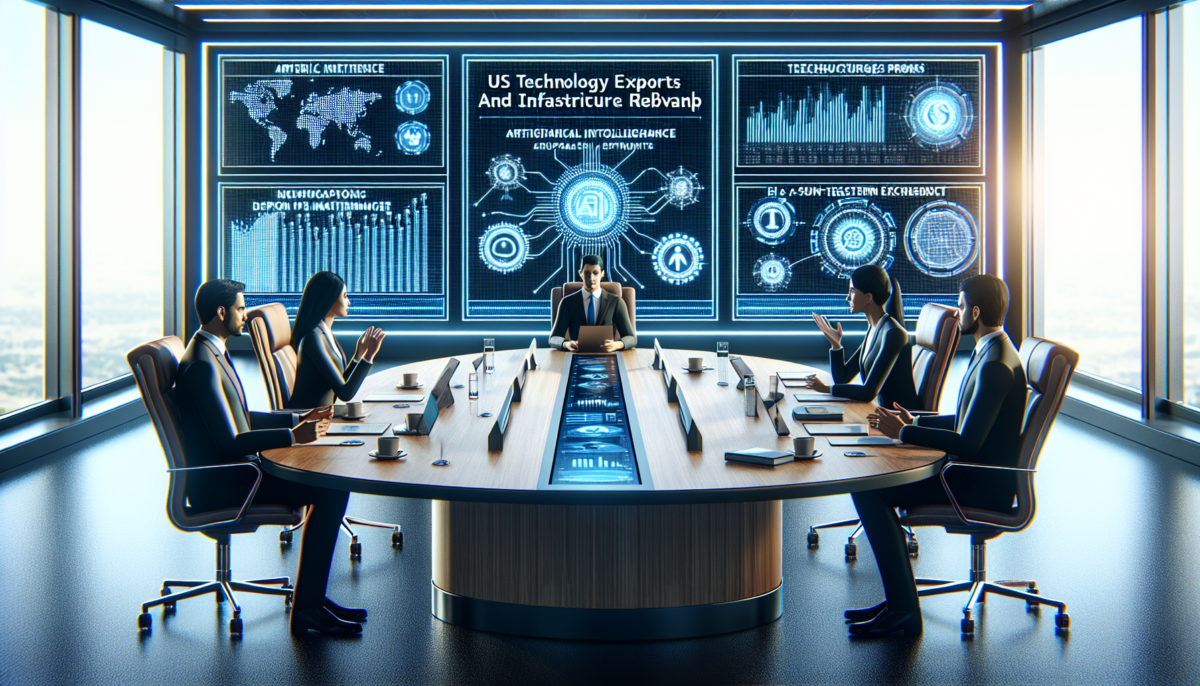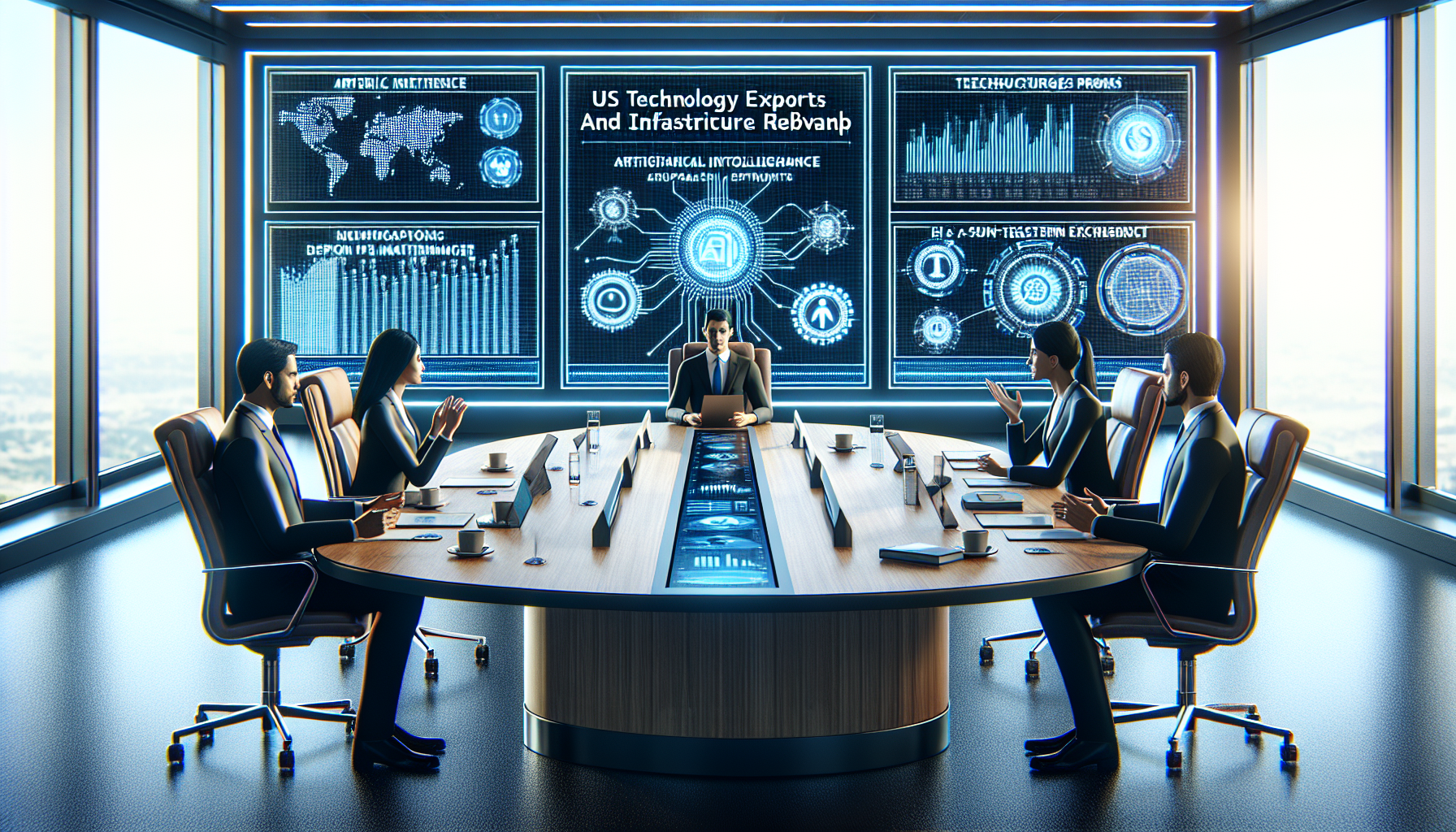AI Executives Call for Enhancement of US Technology Exports and Infrastructure Revamp
We independently review everything we recommend. When you buy through our links, we may earn a commission which is paid directly to our Australia-based writers, editors, and support staff. Thank you for your support!

Quick Read
- AI leaders from OpenAI, Microsoft, and AMD advocate for better infrastructure and looser export regulations to sustain AI supremacy over China.
- The Senate Commerce Committee examines reforms to accelerate AI innovation and global market outreach.
- Chinese companies like DeepSeek and Huawei are swiftly advancing with robust, cost-efficient AI models and state-of-the-art chips.
- Industry representatives demand alterations to AI chip export limitations and greater investment in data facilities and energy infrastructure.
- There are also calls for reforms in education and workforce training to bolster domestic and international AI development.
AI Leaders Caution US About Potential Lag Behind China Without Strategic Reforms

During a pivotal Senate Commerce Committee session, leading artificial intelligence executives from OpenAI, Microsoft, and AMD called on US lawmakers to emphasize infrastructure funding and relax AI chip export constraints. Their collective stance: America’s advantage in the AI arena is diminishing due to the increasing technological challenges posed by China.
China’s AI Acceleration: DeepSeek and Huawei Make Significant Strides
The relatively new AI startup DeepSeek from Hangzhou, China, surprised global observers last year with its efficient and affordable AI model. Its performance metrics were competitive with those of OpenAI’s ChatGPT and Meta’s LLaMA models but at considerably lower costs. This development raised alarms within Western tech networks, as fears grew that China might seize control of the global AI market.
Huawei, already under heavy scrutiny in Western nations, intensified the situation by introducing a cutting-edge AI chip. Reports indicate that Huawei is gearing up for widespread distribution of these chips to domestic clients, confronting Western manufacturers like AMD and Nvidia directly.
US Tech Sector Advocates Policy Revisions for Global Competitiveness
Microsoft’s President, Brad Smith, asserted, “The decisive factor that will determine whether the US or China emerges victorious in this competition is which technology gains the most extensive acceptance globally.” He pointed out that international adoption hinges on the US’s ability to export its AI innovations without hindrance.
Smith underscored security issues, noting that Microsoft has prohibited staff from utilizing DeepSeek due to concerns over data protection and misinformation risks. Drawing comparisons to the Huawei 5G episode, he cautioned that the first country to embed AI technologies into global frameworks would be challenging to displace.
Infrastructure Funding: A Cornerstone of AI Progress
Sam Altman, the CEO of OpenAI, reiterated that while the US currently tops the AI innovation landscape, it needs to reinforce that leadership with essential infrastructure investments. “Data centres, energy sources, and high-performance computing setups are vital to AI,” Altman remarked.
AI systems such as ChatGPT necessitate vast computational resources, with data centres demanding considerable electricity and sophisticated cooling mechanisms. Altman emphasized that without modernized infrastructure, the US risks hindering its own innovation pipeline.
Education and Training: Cultivating the AI Talent Pool
Another crucial aspect brought up by Microsoft’s Smith was the pressing need for workforce development. He urged for increased financing for AI education and vocational training, particularly in the fields of electrical and data engineering, crucial for supporting next-generation AI infrastructure.
With Australia and other countries also investing in AI skills enhancement, there’s a worldwide acknowledgment that human resources are as vital as technology in establishing technological superiority.
Export Regulations: Tech Executives Welcome Proposed Revisions
Export limitations on AI chips, especially those produced by Nvidia and AMD, have induced considerable debate. The departing regulations from the Biden administration aimed to curtail exports to China, fearing military implications of AI. However, these were criticized for being overly broad and risking the competitiveness of US firms on an international scale.
Senator Ted Cruz and other Republican officials indicated a change in direction, with intentions to amend these regulations to allow for more lenient licensing. Industry figures like Lisa Su (CEO of AMD) and Altman applauded this shift, asserting that overly tight regulations could obstruct the worldwide dissemination of American AI innovations.
Conclusion
As AI increasingly becomes a foundation of technological and economic supremacy, the US tech sector is sounding warnings over escalating competition from China. Leaders from OpenAI, Microsoft, and AMD are advocating for a holistic strategy encompassing infrastructure enhancements, educational investments, and relaxed export guidelines. With Chinese entities such as DeepSeek and Huawei making notable progress, preserving global dominance in AI will require more than mere innovation—it will necessitate bold policy and investment moves.
Q: Why are US AI executives alarmed about China’s advancements?
A:
China is swiftly progressing in the AI arena through firms like DeepSeek and Huawei, which are developing competitive models and chips at reduced prices. These advancements pose a risk to US supremacy in the global AI technology landscape, potentially affording China a tactical advantage.
Q: What types of infrastructure investments are being suggested?
A:
Executives propose greater numbers of data centres, improved power systems, and high-performance computing facilities to accommodate increasing AI workloads. These elements are pivotal for efficiently powering and scaling AI applications.
Q: What revisions to export restrictions are being discussed?
A:
The Trump administration intends to relax certain regulations established during the Biden era that restricted AI chip exports aimed at China. The objective is to enable US companies to remain competitive globally while ensuring national security measures are upheld.
Q: How does this impact Australia and its allies?
A:
As a key ally of the US, Australia could potentially gain from greater partnerships and technology collaboration if the US sustains its position as a top AI exporter. Conversely, if China takes the lead, it could alter global AI standards and supply chains, impacting Australian tech strategies and security protocols.
Q: What significance does education have in AI progress?
A:
Industry leaders emphasize the need to train more engineers, electricians, and AI professionals to establish and maintain the infrastructure required for AI innovations. A talented workforce is essential for scaling AI initiatives successfully.
Q: What is the relationship between AI chip exports and global influence?
A:
The broader the usage of a nation’s AI chips and models, the more clout that nation possesses over international AI regulations, ethics, and data governance. This establishes why the US regards exports as a critical strategic issue.
Q: What is the Senate Commerce Committee’s involvement in this matter?
A:
Chaired by Senator Ted Cruz, the Committee is evaluating regulations that may be obstructing AI progression. It is looking into means to support the growth of the tech industry through policy modifications, funding allocations, and deregulation.
